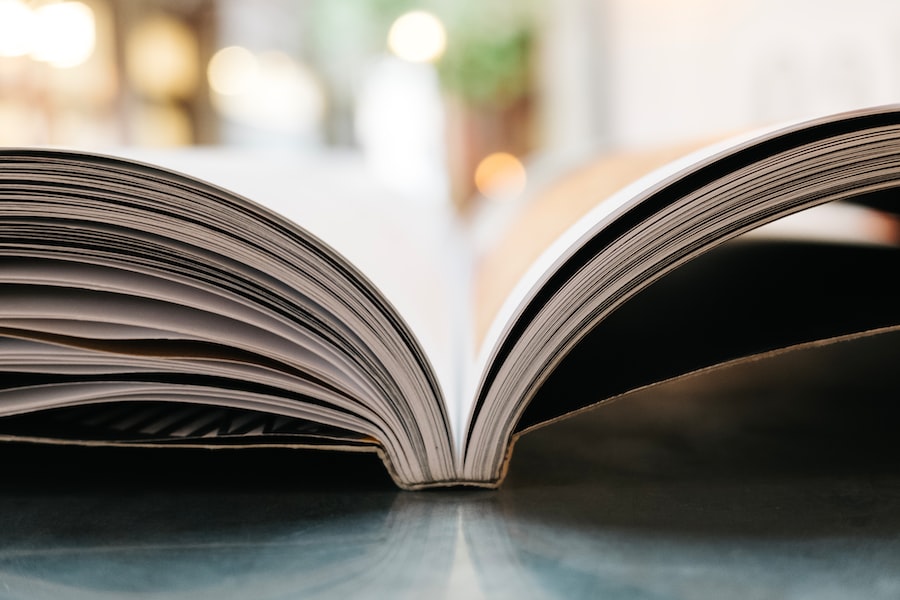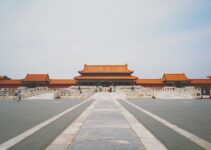Ursula K. Le Guin’s Earthsea Cycle is a renowned series of fantasy novels that has captivated readers for decades. The series consists of five books, beginning with “A Wizard of Earthsea” in 1968 and concluding with “The Other Wind” in 2001. Le Guin’s Earthsea Cycle is widely regarded as a seminal work in the fantasy genre, and its influence can be seen in the works of many contemporary authors.
The Earthsea Cycle is set in a world comprised of numerous islands, where magic is a central element of society. The series follows the journey of Ged, a young boy who discovers his magical abilities and becomes a powerful wizard. Throughout the books, Le Guin explores themes of power, responsibility, gender, and the importance of language and naming.
The Magic System in Earthsea
One of the most intriguing aspects of the Earthsea Cycle is its unique magic system. Le Guin’s philosophy behind the magic in Earthsea is deeply rooted in the concept of balance. In this world, magic is seen as a force that must be kept in equilibrium with the natural world. This philosophy is reflected in the way magic is taught and practiced by the characters in the series.
In Earthsea, magic is not simply a tool to be used for personal gain or power. It is a force that must be respected and used responsibly. The consequences of using magic recklessly or for selfish purposes are explored throughout the series, highlighting the importance of balance and self-control.
Language also plays a crucial role in the magic system of Earthsea. Spells are cast through the use of words and names, and understanding the true names of things is considered essential to wielding magic effectively. This emphasis on language adds depth to the world-building and creates a sense of wonder and mystery.
The Role of Gender in Earthsea
Le Guin’s portrayal of gender in the Earthsea Cycle has been widely praised for its progressive and feminist perspective. In a genre that often marginalizes or stereotypes female characters, Le Guin presents a world where gender is not a limiting factor in the pursuit of power and knowledge.
Female characters in the Earthsea Cycle are depicted as strong, complex individuals who play significant roles in the story. They are not relegated to the sidelines or reduced to love interests or damsels in distress. Instead, they are fully realized characters with their own agency and motivations.
Le Guin’s feminist perspective is evident in her exploration of gender roles and expectations. She challenges traditional notions of masculinity and femininity, presenting a world where power and wisdom are not exclusive to one gender. This subversion of gender norms adds depth and complexity to the series, making it a standout in the fantasy genre.
The Themes of Power and Responsibility in Earthsea
Power and responsibility are central themes in the Earthsea Cycle. Le Guin explores the consequences of wielding power without a sense of responsibility and the importance of self-awareness and self-control.
Throughout the series, characters grapple with the temptation to use magic for personal gain or to exert control over others. The negative consequences of such actions are made clear, emphasizing the need for restraint and ethical decision-making.
Le Guin also delves into the idea that true power comes from understanding oneself and accepting one’s limitations. Characters who are self-aware and in tune with their own strengths and weaknesses are portrayed as more powerful than those who seek power for its own sake.
The Protagonists of Earthsea
The main protagonists of the Earthsea Cycle undergo significant character development throughout the series. Ged, the central character, starts as a young boy with immense potential but must learn humility and self-control before he can become a true wizard.
As Ged embarks on his journey, he encounters other characters who also undergo personal growth and transformation. Le Guin explores their motivations, fears, and desires, creating complex and relatable characters.
The journeys of the protagonists in the Earthsea Cycle are not just physical adventures but also internal quests for self-discovery and understanding. This focus on character development adds depth and richness to the series, making it more than just a typical fantasy tale.
The Importance of Language and Naming in Earthsea

Language and naming play a significant role in the Earthsea Cycle. In this world, words have power, and knowing the true names of things is essential to wielding magic effectively.
Le Guin’s linguistic approach to the series adds a layer of depth and complexity to the world-building. The use of language is not just a tool for communication but also a means of shaping reality. By understanding the true names of things, characters in Earthsea can exert control over them.
The power of names is explored throughout the series, highlighting the importance of language in shaping our perception of the world. Le Guin’s exploration of this concept adds a philosophical dimension to the Earthsea Cycle, making it a thought-provoking and intellectually engaging series.
The Worldbuilding of Earthsea
Le Guin’s worldbuilding in the Earthsea Cycle is masterful and immersive. The setting of Earthsea is a vast archipelago comprised of numerous islands, each with its own distinct culture and history.
The influence of mythology and folklore is evident in the world of Earthsea. Le Guin draws on various mythological traditions to create a rich tapestry of legends and stories that add depth and authenticity to the series.
The cultural diversity of Earthsea is also explored, with different islands representing different societies and belief systems. This attention to detail creates a sense of realism and makes the world of Earthsea feel fully realized.
The Influence of Taoism and Eastern Philosophy in Earthsea
Le Guin’s incorporation of Taoism and Eastern philosophy in the Earthsea Cycle is another aspect that sets the series apart from other fantasy works. The themes and messages of the series are deeply influenced by these philosophies, adding a unique and thought-provoking dimension to the story.
Taoism emphasizes the importance of balance and harmony, which is a central theme in the Earthsea Cycle. The concept of yin and yang, the interplay of opposing forces, is reflected in the magic system and the philosophy of the world.
Eastern philosophy also emphasizes the interconnectedness of all things, which is explored in Le Guin’s portrayal of magic and the natural world. Characters in Earthsea must learn to respect and work in harmony with nature, rather than seeking to dominate or control it.
The Literary Legacy of Ursula K. Le Guin’s Earthsea Cycle
The Earthsea Cycle has received widespread critical acclaim since its publication. Le Guin’s masterful storytelling, complex characters, and thought-provoking themes have made the series a beloved classic in the fantasy genre.
The impact of the Earthsea Cycle on the fantasy genre and literature as a whole cannot be overstated. Le Guin’s exploration of gender roles, her nuanced portrayal of power and responsibility, and her incorporation of Taoism and Eastern philosophy have influenced countless authors and shaped the way we think about fantasy literature.
Le Guin’s work continues to resonate with readers today, and her legacy as one of the greatest fantasy authors of all time is secure. The Earthsea Cycle stands as a testament to her talent and creativity, and its enduring popularity is a testament to its timeless appeal.
Ursula K. Le Guin’s Earthsea Cycle is a groundbreaking series that has had a profound impact on the fantasy genre. Through its exploration of themes such as power, responsibility, gender, language, and naming, Le Guin creates a rich and immersive world that continues to captivate readers.
The Earthsea Cycle’s unique magic system, complex characters, and thought-provoking themes have made it a classic in the fantasy genre. Le Guin’s feminist perspective and incorporation of Taoism and Eastern philosophy have also set the series apart from other works in the genre.
The literary legacy of the Earthsea Cycle is undeniable. Le Guin’s influence can be seen in the works of many contemporary authors, and her impact on the fantasy genre and literature as a whole is immeasurable. The enduring popularity of the Earthsea Cycle is a testament to its timeless appeal and the lasting legacy of Ursula K. Le Guin’s work.
If you’re a fan of “The Earthsea Cycle” by Ursula K. Le Guin, then you’ll definitely want to check out this fascinating article on the Free Info Site. This article delves into the rich and intricate world-building of Le Guin’s beloved fantasy series, exploring the themes of power, identity, and balance that are central to the narrative. Discover how Le Guin masterfully weaves together elements of magic, mythology, and coming-of-age stories to create a truly immersive reading experience. Don’t miss out on this insightful analysis – click here to read the article: https://free-info-site.com/sample-page/.



